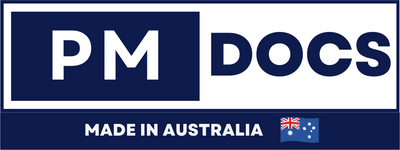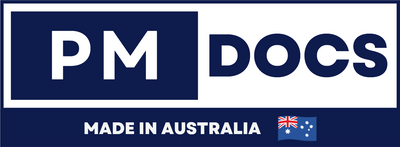ISO 27001
Introduction
ISO 27001 is an internationally recognized information security management system (ISMS) standard. It provides a comprehensive framework for organizations to establish, implement, operate, monitor, review, maintain, and continually improve their information security. With the increasing risks and vulnerabilities associated with the digital age, implementing ISO 27001 has become crucial for businesses of all sizes and sectors to protect their sensitive information and ensure data confidentiality, integrity, and availability.

What is the ISO 27001 Standard?
- The ISO 27001 standard, also known as ISO/IEC 27001:2013, is an international standard developed by the International Organization for Standardization (ISO) and the International Electrotechnical Commission (IEC). It provides a framework for establishing, implementing, maintaining, and continually improving an Information Security Management System (ISMS).
- ISO 27001 focuses on a systematic approach to managing sensitive company information, including customer data, financial information, employee records, etc. It includes requirements for risk assessment, treatment, information security policy, security controls, incident management, monitoring, and continuous improvement.
- Organizations achieving ISO 27001 certification demonstrate their commitment to information security management and ensuring their information's confidentiality, integrity, and availability. The standard helps organizations to identify and manage risks, protect against potential security breaches, and maintain compliance with applicable laws and regulations.
- ISO 27001 certification is voluntary but widely regarded as a significant achievement and is often required by clients, partners, and regulatory bodies to ensure secure information handling.
What is ISMS?
ISMS stands for Information Security Management System. It is a systematic approach to managing sensitive company information, ensuring its confidentiality, integrity, and availability. ISMS includes policies, procedures, and controls to identify, assess, and manage information security risks within an organization. It helps safeguard information assets and maintain the overall security posture of an organization.
How to Get ISO 27001 Certification?
To obtain ISO 27001 certification, you need to go through the following steps:
- Familiarize Yourself with the ISO 27001 Standard: Understand the requirements and principles outlined in the standard. Read the official ISO 27001 documentation and resource materials available in English.
- Conduct a Gap Analysis: Assess your organization's current information security management system (ISMS) against the requirements of ISO 27001. Identify areas that need improvement to meet the standard's criteria.
- Plan and Implement an ISMS: Develop and implement an ISMS within your organization. This includes defining policies, conducting risk assessments, implementing controls, and establishing processes for managing information security.
- Perform Internal Audits: Regularly audit your ISMS to ensure it meets ISO 27001 requirements. Identify any non-conformities and take corrective actions.
- Conduct a Management Review: Review the performance of your ISMS with senior management. Evaluate the effectiveness of controls and identify areas for improvement.
- Select a Certification Body: Choose an accredited certification body that specializes in ISO 27001 certification. Look for accreditation symbols such as UKAS, JAS-ANZ, or ANAB.
- Stage 1 Audit: The certification body will conduct an initial audit to assess your organization's preparedness for compliance with ISO 27001. They will review your documentation, processes, and controls.
- Stage 2 Audit: The certification body will thoroughly audit your ISMS implementation, including employee interviews. They will assess the effectiveness and consistency of your controls.
- Corrective Actions: Address any non-conformities and implement corrective actions based on the findings of the stage 2 audit.
- Certification: If your organization successfully meets all ISO 27001 requirements, you will receive ISO 27001 certification. This certificate demonstrates your commitment to information security management.
- Surveillance Audits: To maintain certification, the certification body will conduct periodic surveillance audits to ensure ongoing compliance with the standard.

What is the ISO 27001 Certification Cost?
The cost of ISO 27001 certification can vary depending on several factors, such as the size and complexity of the organization, the scope of certification, the level of support required, and the certification body chosen. On average, the total cost of certification can range from $10,000 to $50,000. This cost includes expenses related to gap analysis, risk assessment, documentation development, training, internal audit preparation, certification audit, and ongoing maintenance. It is important to note that these figures are approximate and can vary significantly based on individual circumstances.
Why do you Need ISO 27001 Certification?
ISO 27001 certification is needed for several reasons:
- Recognized Information Security Standard: ISO 27001 is an internationally recognized standard that provides a framework for implementing and managing an information security management system (ISMS). Achieving certification demonstrates that an organization has implemented the necessary controls and safeguards to protect sensitive information.
- Compliance Requirements: Many regulatory frameworks and industry standards require organizations to have an ISMS to protect personal data, financial information, and other sensitive data. ISO 27001 certification helps organizations meet these compliance requirements.
- Customer Trust and Confidence: ISO 27001 certification enhances customer trust and confidence in an organization's ability to handle its data securely. It gives assurance that appropriate measures are in place to protect confidential information and reduces the risk of data breaches.
- Competitive Advantage: ISO 27001 certification can provide organizations with a competitive advantage, especially when bidding for contracts or when clients prefer working with certified partners. It demonstrates an organization's commitment to data security and differentiates it from competitors.
- Risk Management: ISO 27001 certification requires organizations to identify and assess risks to information security and implement appropriate controls to mitigate those risks. This helps organizations effectively manage information security risks and minimize the impact of potential security incidents.
- Continuous Improvement: ISO 27001 certification is not a one-time achievement but requires regular ISMS monitoring, review, and improvement. This ensures that an organization stays updated with evolving threats and maintains a proactive approach to information security.

ISO 27001 certification is necessary to establish a robust and systematic approach to information security management, comply with legal requirements, enhance customer trust, gain a competitive edge, and improve overall risk management practices.
What are ISO 27001 Clauses?
ISO 27001 is a widely recognized international standard for information security management systems. It outlines requirements for establishing, implementing, maintaining, and continually improving an organization's information security management system.
The standard is divided into several sections called clauses. Each clause addresses a specific aspect of information security management. The ISO 27001 standard has 14 clauses, which are as follows:
Clause 1: Scope
This clause defines the scope of the information security management system and specifies its applicability within the organization.
Clause 2: Normative References
It outlines the standards and other documents referenced in ISO 27001 that must be considered when implementing the information security management system.
Clause 3: Terms and Definitions
This clause lists terms and definitions used throughout the standard to ensure common understanding.
Clause 4: Context of the Organization
It requires organizations to determine the internal and external issues relevant to their information security management system and the needs and expectations of interested parties.
Clause 5: Leadership
Organizational leaders must demonstrate their commitment to the information security management system and establish a framework for its implementation and operation.
Clause 6: Planning
This clause focuses on risk assessment and treatment, including identifying and assessing risks to the organization's information assets and defining controls to mitigate those risks.
Clause 7: Support
It outlines the resources, competence, awareness, communication, and documentation needed to support the information security management system.
Clause 8: Operation
This clause covers implementing risk treatment plans, incident management, business continuity, and regular monitoring and review of the system's performance.
Clause 9: Performance Evaluation
Organizations must monitor, measure, analyze, and evaluate the performance of their information security management system.
Clause 10: Improvement
This clause emphasizes the need for continual system improvement based on the results of performance evaluations and reviews.
Clause 11: Annex A
Annex A contains 114 controls categorized into 14 domains, used as references and guidance for implementing the necessary measures to address information security risks.
Clause 12-14:
These three clauses cover the requirements for certification, including the audit process, management reviews, and the commitment to maintain certification.

What is ISO 27001 2022 Controls?
ISO 27001 is an international information security management system (ISMS) standard. The controls specified in ISO 27001:2022 are measures and guidelines designed to ensure information confidentiality, integrity, and availability within an organization. The 2022 version of ISO 27001 includes the following controls:
- A.5: Information Security Policies
- A.6: Organization of Information Security
- A.7: Human Resource Security
- A.8: Asset Management
- A.9: Access Control
- A.10: Cryptography
- A.11: Physical and Environmental Security
- A.12: Operations Security
- A.13: Communications Security
- A.14: System Acquisition, Development, and Maintenance
- A.15: Supplier Relationships
- A.16: Information Security Incident Management
- A.17: Information Security Aspects of Business Continuity Management
- A.18: Compliance
How Long Does it Take to Get ISO 27001 Certification?
- The time it takes to obtain ISO 27001 certification can vary depending on several factors. The duration typically depends on the size and complexity of the organization, the level of preparedness in terms of existing information security management practices, and the resources allocated to the implementation process.
- Organizations may take 6 to 18 months to achieve ISO 27001 certification. This time frame includes activities such as conducting a risk assessment, establishing information security policies and procedures, implementing controls, conducting internal audits, and undergoing formal certification audits by an accredited certification body. Additionally, the organization may need to address any identified non-conformities and make necessary improvements to meet the standard's requirements.
- It is important to note that this timeline is an estimate and that the time required may vary for each organization. Seeking guidance from a consultant or experienced professionals can help ensure a smooth and efficient certification process.





